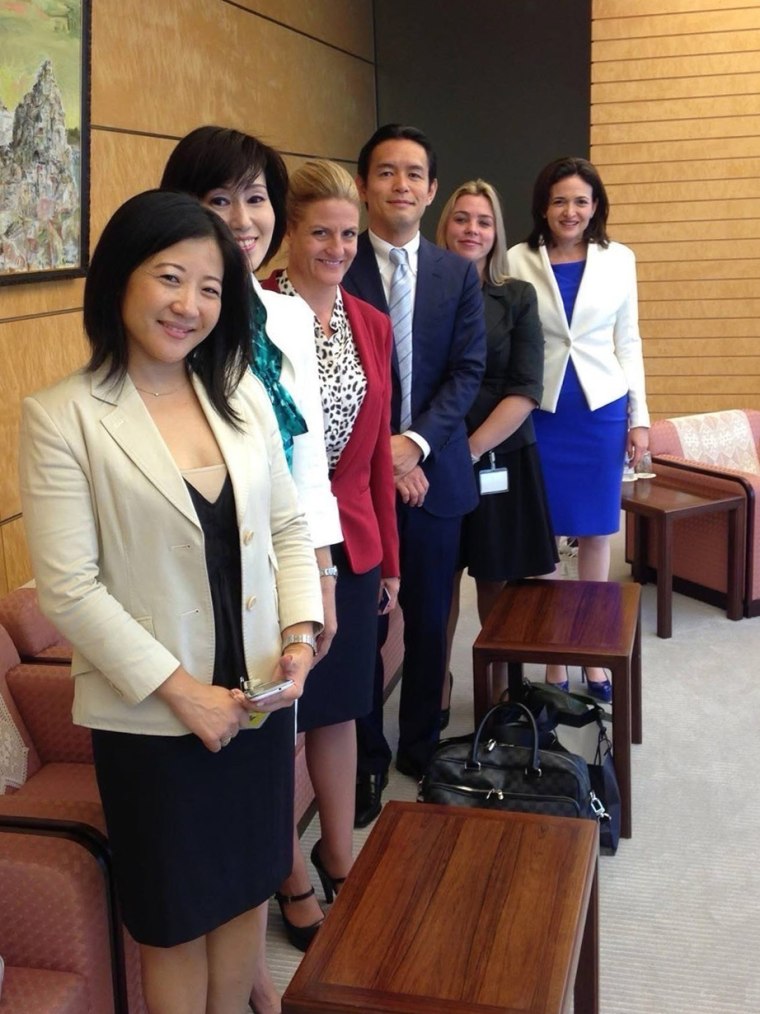Facebook's Dark Secrets: A Former Director's Shocking Tale
Did the promise of social media's revolutionary potential truly materialize, or did a different, more complex reality unfold? The story of Sarah Wynn Williams, and the world she navigated at the heart of Meta, serves as a potent reminder of the unintended consequences that can arise when idealism collides with the realities of power and influence.
In 2011, fueled by a conviction that technology could be a force for good, Sarah Wynn Williams embarked on a journey that would lead her to the upper echelons of Facebook, later rebranded as Meta. She saw the potential of Facebook, the ability to connect people, share ideas, and even reshape the world. Her initial vision was to champion this potential, shaping policy to ensure the tech behemoth remained a force for good, independent and aligned with her own political ideals. Her pursuit of a career within the organization was driven by this belief, ultimately landing her the role of Director of Global Public Policy. The journey, however, would prove to be far more complex than she could have anticipated. Her experience provides a unique lens through which to examine the ethical dilemmas and shifting landscape of power that have come to define the digital age.
| Category | Details |
|---|---|
| Full Name | Sarah Wynn Williams |
| Birthplace | Christchurch, New Zealand |
| Education | Bachelor of Arts in Political Science, International Relations, and Diplomacy (University of Canterbury), Master's Degree (details unspecified) |
| Career Highlights | Director of Global Public Policy, Meta (formerly Facebook) |
| Known For | Her role in shaping public policy within Meta, her insights into the internal workings of the company, and her reflections on the ethical implications of social media. |
| Published Work | Author of a book that details her experiences within Meta. (Title unspecified in source material) |
| Book Release | The book was released in 2025. |
| Controversies/Points of Interest | The book's release was met with objections from Meta. Contains "salacious stories" |
| Primary Focus | To highlight the evolution of the company from its initial idealistic outlook to its current situation, and the potential pitfalls of power, greed and lost idealism. |
| Reference | Meta Platforms - Wikipedia (Note: While this Wikipedia entry covers Meta, specific details about Sarah Wynn Williams' life might require further research via other sources.) |
The narrative surrounding Williams's story and her experiences within Meta, as presented in her newly released book, paints a picture of the complex interplay between technology, power, and individual ambition. The book, released in 2025, offers a critical perspective on the company's evolution, and the impact of its decisions on the world. The account promises a blend of personal anecdotes, inside information, and a broader exploration of the ethical dilemmas that arose as Meta grew in influence.
Born in Christchurch, New Zealand, Williams's trajectory exemplifies the allure of the technology sector and the often-unforeseen consequences of entering such a rapidly evolving landscape. Her academic background, including a Bachelor of Arts in Political Science, International Relations, and Diplomacy from the University of Canterbury, equipped her with the tools to analyze complex systems and navigate the intricacies of global politics. This background, combined with her Master's degree (the specifics of which are not provided), suggests a strong intellectual foundation upon which she built her career. This grounding in political science and international relations would have likely informed her approach to public policy, a field where she would eventually play a significant role at Meta.
The book promises to be a "shocking and darkly funny story" that pulls back the curtain on one of the most influential companies on the planet. The marketing of the book reveals more than mere autobiography, it is framed as a cautionary tale, one that delves into the consequences of power, greed, and the potential for lost idealism. The book's release in 2025, met with objections from Meta, suggests the book may offer a critical perspective on the company's operations, decisions, and overall impact. This alone lends significance to the account, indicating a degree of tension between the author's revelations and the company's interests.
Beyond the personal narrative, the book's release provides an opportunity to examine the broader societal implications of social media. Meta, as a company, has become an unavoidable factor in global politics, culture, and economics. Its decisions impact everything from election outcomes to the spread of information and the formation of social movements. The book, therefore, provides a window into the forces that shape our digital world, and the individuals who are tasked with managing them.
The book's account features "salacious stories," which, while intriguing, are only part of the narrative. The inclusion of such details suggests a frank exploration of the internal culture of Meta, and perhaps the personalities and behaviors that shaped the company's evolution. The "don't mention children ethos," indicates the company's internal protocols on sensitive topics, highlighting the importance of control over the public narrative. This control, a crucial element of the corporation's power, is central to the themes the book explores.
The details of Williams's career at Facebook/Meta show a path of increasing influence, taking her from an outsider looking in to a decision-maker at the highest level. This progression undoubtedly gave her privileged access to the inner workings of the organization. It is possible to understand the forces at play that shaped the decisions that ultimately molded the digital age. The authors trajectory, from the pursuit of political ideals to the exercise of corporate power, will provide a complex picture of the company's evolution.
The initial optimism surrounding social media, the promise of connection and open information, now appears more nuanced. We, as users, were swept up in the wave of technological advancement, perhaps without considering the ramifications. In the early days of Facebook, few could have predicted the global impact, and even fewer could have foreseen the ethical questions that would arise. The question now becomes: are we truly benefiting from these technological advances? Should we reconsider our engagement with social media and its effects? This question underpins the book's central theme.
The narrative also touches on the personal, with anecdotal references to the lifestyle of the company's leaders. For example, the fact that a private plane has only one bed, and that bed belongs to Sandberg, indicates the lifestyle afforded to those at the top. The mention reinforces the themes of power and influence, and the dynamics of the top executives within this corporation.
The book's release in 2025 is noteworthy. This timing can be seen as a response to the increasing scrutiny placed on social media companies and their impact on society. It may represent an attempt to address the concerns of both the public and the industry and contribute to a larger conversation about the future of technology. The narrative provided in the book, alongside the controversy surrounding its release, can serve as a catalyst for discussions on accountability, transparency, and the balance between technological innovation and societal well-being.
The story is not just about a single individual; it is about a generation's experience with social media and its effects. It is about an industry that has grown in both influence and complexity. Through Williams's experience, we are given a view into the challenges of the digital age, and the choices we have to make as we navigate this increasingly complex world. The success of the story, and its long-term effect, will depend on the narrative's honesty and the questions it raises.
In the wake of this book's release and the narrative it provides, it is important to pause and reconsider our relationship with technology. It is a call to arms for critical thought and an understanding of the broader effects of the digital era. We are encouraged to evaluate the trade-offs and embrace a more informed approach to the power and influence that social media wields in our lives. The book's success depends on its ability to provide a glimpse into the inner workings of Meta, and the ethical implications of the organization's power, hopefully igniting broader discussions on the role technology plays in society and the need for responsible innovation.
The story of Sarah Wynn Williams is not just a recounting of personal experience, but also an invitation to critically assess the role of major technology companies in shaping the world we live in. The book, the author, and the events surrounding its release, call us to consider the benefits and risks of social media. The story is a cautionary tale, one that urges us to approach technology with a critical and discerning eye. The book, and its reception, is indicative of a growing awareness of the need for ethical considerations when developing and implementing technology.
While the book promises a focus on the inner workings of Facebook/Meta, there is also a nod to other cultural developments, such as Oprah's Book Club tapping "The Tell" by Amy Griffin and the rise of the LitRPG genre with Matt Dinniman's "Dungeon Crawler Carl" series. These cultural connections suggest that the book aims to tap into a broader contemporary dialogue about power, technology, and the human experience in the digital age.
The book, in its entirety, is a sign of the changing climate surrounding social media and big technology companies. The story of Williams, and her book, is an important piece of a much larger puzzle, providing insight into the impact of Meta and its role in shaping the modern world. Through such stories, society is challenged to understand what lies behind the screen.
Click and collect from your local waterstones or get free UK delivery on orders over 25.


